Building Healthy Self-Esteem in Kids with Central Precocious Puberty

Feeling “Different” and Self-Image
Children with central precocious puberty, or CPP, have to cope with more than just the changes to their bodies. The feeling of being different from other kids, especially at young ages, often affects the way they view themselves. The good news is you can help foster happiness and well-being through adolescence with the right treatment plan and support.
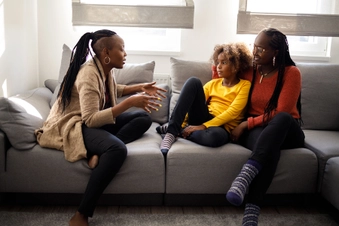
Speak Plainly
Your child may feel self-conscious about the physical effects of precocious puberty. Kids don’t want to stand out or be different. Offer simple, candid explanations about the changes they’re having. Stress that even though they’re experiencing puberty early, it’s still a normal process other kids will go through later on.

Be Savvy to Signs of Problems
Be watchful for signs your child might be being teased or having other problems that affect them emotionally. Alert your child’s care team if:
- Your child is losing interest in everyday things they used to enjoy.
- Their grades are dropping.
- You see signs of depression.
- You catch wind of issues at school.
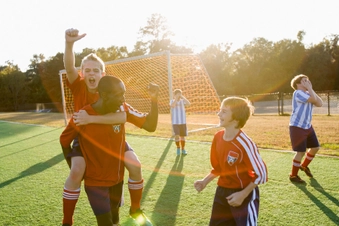
Treat Your Child True to Their Age
When a child enters precocious puberty, others may think – and treat them as if – they’re older and more mature than they really are. Remind people as needed. Allow your child to join in on age-appropriate activities like sports, extracurriculars, and sleepovers. Meanwhile, keep the lines open for your child to discuss concerns.

Check Your Own Reactions
Your child will mirror your own values and attitudes. Be sure to:
- Focus on non-physical qualities, such as good sportsmanship or humor
- Not make comments about your, your child’s, or others’ outward appearance
- Praise academic, sports, and other achievements
- Show enthusiasm for their interests
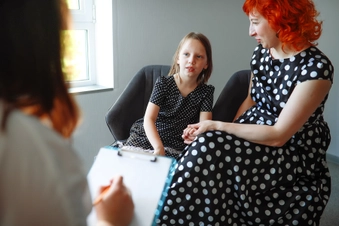
Emotional Support Is Key
You – and your child – don’t have to do it alone. Their medical team, including nurses and psychologists, can help your child understand and accept the changes and feelings they’re having. In addition to supporting your child, they also can teach them coping strategies and help boost self esteem.

Model Healthy Coping Skills
A good therapist can help bridge parent-child communication gaps that form during puberty. Meanwhile, you can model coping skills for your child. These can include:
- Journaling
- Taking a walk
- Deep breathing and mindfulness exercises
- Having playtime with a pet
- Practicing positive self-talk
- Seeking personal space when needed
- Putting on some music

Narrate Coping Methods
As you model healthy behaviors, explain why you’re doing them, preferably in advance. If you need a few minutes to yourself, tell your child it’s not because of them, but that you need space to process your own feelings. Older kids respond well to a technique called narration. Instead of telling a distressed child to calm down, tell them what you’re going to do to compose yourself.

Find Examples in the Media
It’s key to find media representation for all kids who have certain differences or health challenges. An internet search will turn up books about kids who go through early puberty. Reviews can help you sort out what’s appropriate for your child. Your family can enjoy and talk about the topics portrayed together.

Advocate for Your Child
If your child is having problems at school or other activities like sports, take up the matter with the teacher, coach, or person in charge. They might be able to make the situation better. It can also help change their view if they believe your child is older or more mature than they really are.
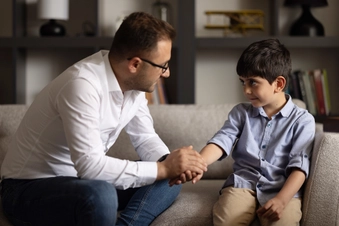
Talk About Sex Earlier
Kids who have CPP often have sexual feelings and questions before those without the condition. It can be emotionally distressing for a child to have a sex drive or go through sexual development early. You might need to discuss sexual changes a lot earlier than you’d planned. It’s smart to keep an ear out for concerns and questions.
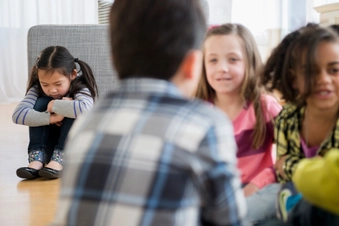
Teach Strategies for Teasing
If your child is being teased, you can help them handle it by:
- Not overreacting. Help your child feel confident they can deal with it.
- Encouraging your child to hang with kids who make them feel good about themselves.
- Arming your child with possible responses. This might include ignoring the teasing, saying “so?” to show indifference, or turning a rude comment into a compliment.
If the teasing goes on or becomes harassment, alert administrators.
Show Sources
IMAGES PROVIDED BY:
1) OJO Images/Getty Images
2) E+/Getty Images
3) E+/Getty Images
4) E+/Getty Images
5) E+/Getty Images
6) Moment/Getty Images
7) iStock/Getty Images
8) E+/Getty Images
9) E+/Getty Images
10) E+/Getty Images
11) E+/Getty Images
12) Tetra Images/Getty Images
SOURCES:
Boston Children’s Hospital: “Precocious Early Puberty.”
The Magic Foundation: “Precocious Puberty.”
Nemours KidsHealth: “Precocious Puberty.”
Lurie Children’s: “Precocious (Early) Puberty.”
Child Mind Institute: “How Early Puberty Affects Children’s Mental Health,” “How to Model Healthy Coping Skills.”
Norton Children’s Gynecology: “How Parents Can Help Kids Manage Early Puberty.”
Medscape: "Precocious Puberty."
ERIC Digest (Institute of Education Sciences): “Easing the teasing: How parents can help their children.”